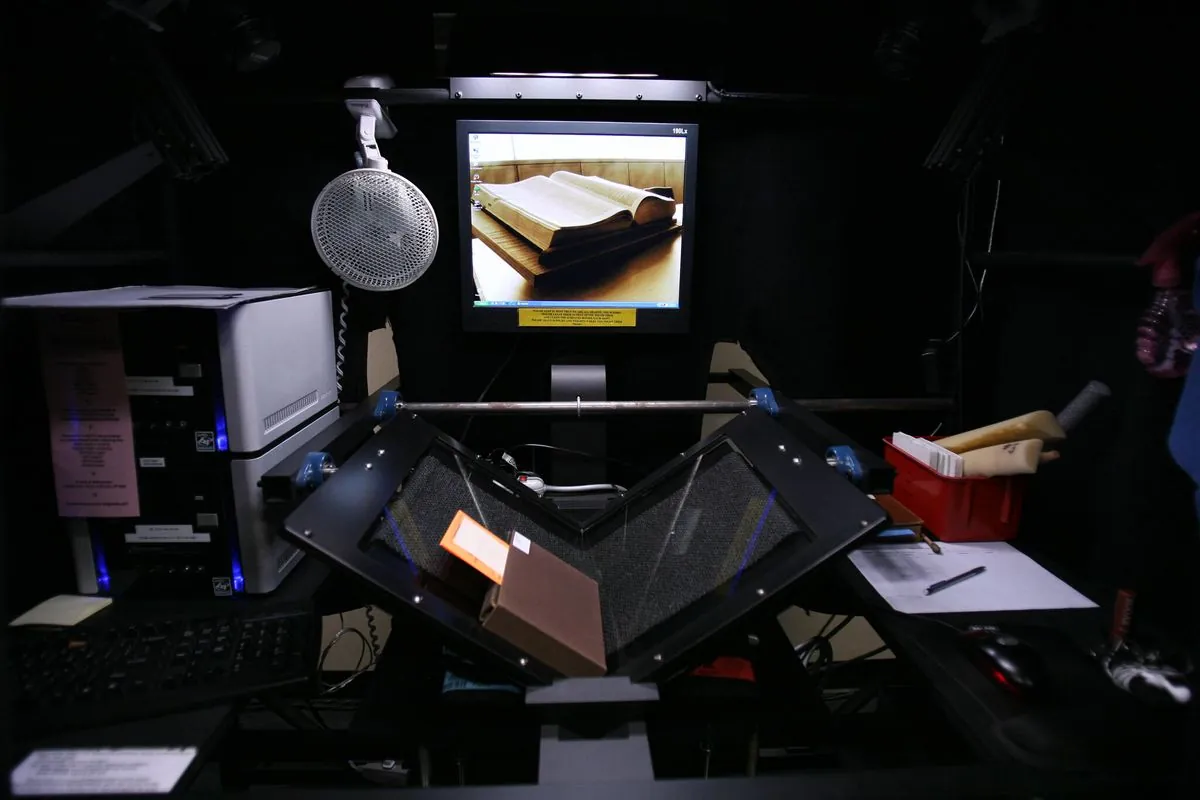"Seeking Mavis Beacon": A Digital Quest for Identity and Representation
Filmmakers explore the myth of Mavis Beacon, uncovering complex issues of digital identity and representation. Their journey becomes a thought-provoking examination of cultural icons and artistic inquiry.

In the realm of educational software, few names resonate as strongly as Mavis Beacon. For many, she was the face of typing instruction, guiding countless students through the intricacies of keyboard mastery. However, the truth behind this digital icon is far more complex than most realize.
Jazmin Renée Jones and Olivia McKayla Ross, in their debut documentary "Seeking Mavis Beacon," embark on a journey to uncover the reality behind the persona. Their investigation reveals that Mavis Beacon was not a real person, but a fictional character created by three White male tech entrepreneurs. The face of Mavis belonged to Renée L'Espérance, a Haitian-born woman who was paid $500 in 1987 for her image rights.
The documentary, released 37 years after L'Espérance's initial involvement, delves into the implications of this revelation. It explores themes of digital identity, representation, and the ethics of creating fictional personas for commercial gain. The filmmakers use a variety of media formats to tell their story, including viral memes, deepfakes, and academic texts, all set against a simulated Windows 95 desktop.

As Jones and Ross dig deeper, they encounter both breakthroughs and roadblocks. Their investigation takes them across the country, involving cold calls, neighborhood canvassing, and even spiritual rituals. The documentary makes unexpected connections, including one to actor Robert Blake, adding layers of intrigue to the narrative.
The film doesn't shy away from addressing broader societal issues. It examines the tech industry's tendency to create "servile fembots" like Siri and Alexa, and explores concepts of intersectionality and self-image making. References to influential figures such as writers Anaïs Nin and Saidiya Hartman, as well as the fictional Lt. Uhura from "Star Trek," provide additional context for these discussions.
"She's like the Aunt Jemima of technology."
As the filmmakers confront the ethical implications of their quest, the documentary transforms into a reflection on artistic inquiry itself. The COVID-19 pandemic adds another layer of complexity to their already challenging journey.
"Seeking Mavis Beacon" is more than just a search for a person; it's an exploration of how digital personas shape our perceptions and cultural landscape. By intertwining their own experiences with the broader narrative, Jones and Ross create a thought-provoking examination of representation in the digital age.
The 104-minute documentary, shown at Landmark E Street Cinema, serves as a testament to the power of persistent investigation and the unexpected paths such inquiries can take. It challenges viewers to reconsider their relationships with digital icons and the real people behind them.


































